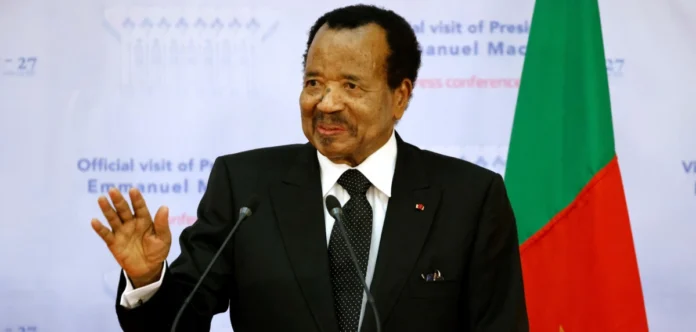Cameroon’s President Paul Biya, 92, has once again extended his more than four-decade hold on power after being declared the winner of the presidential election with 53.66 percent of the vote. The result, announced by the Constitutional Council, keeps him in office as one of the world’s oldest and longest-serving leaders — a living symbol of Africa’s unfinished struggle with political succession.
But beneath the official calm lies a quiet crisis. Biya’s continued dominance is reshaping Cameroon’s democracy, economy, and security — and not for the better.
Democracy Without Renewal
Four decades of unbroken rule have hollowed out Cameroon’s democratic institutions. Elections have become rituals rather than contests, and opposition parties operate in a climate of intimidation and fatigue. Civil society, the press, and ordinary citizens have learned that dissent is tolerated only within narrow limits.
At 92, Biya governs a nation where an entire generation has never known another leader. Yet, no clear succession plan exists. Within the ruling party and military, quiet rivalries simmer over who will inherit the system he built. The longer this uncertainty lingers, the weaker Cameroon’s institutions become — leaving the country vulnerable to a chaotic transition when the inevitable finally arrives.
An Economy Trapped in Stasis
Cameroon’s economy mirrors its leadership: slow, centralized, and resistant to renewal.
Policy inertia has stifled innovation, while corruption and bureaucratic control deter investors. Although blessed with oil, fertile land, and a strategic position in Central Africa, the country remains hampered by outdated policies and uneven development.
Wealth is concentrated in Yaoundé and Douala, while the Anglophone regions remain marginalized. The resulting inequality fuels resentment and deepens the country’s internal fractures. For many young Cameroonians, the future looks closed — not because opportunity doesn’t exist, but because power never changes hands.
Security Without Stability
The government’s heavy-handed approach to the Anglophone crisis has entrenched a low-intensity civil conflict that continues to cost lives and displace thousands.
Instead of dialogue, Yaoundé has relied on military force, widening the gulf between the state and its English-speaking regions.
Meanwhile, Cameroon faces external threats from Boko Haram in the north and instability spilling from the Central African Republic and Chad. With an aging leadership and overstretched security apparatus, the country risks becoming more brittle than stable.
The Real Cost of Longevity
Paul Biya’s defenders argue that his endurance has spared Cameroon the chaos of coups and insurgencies that haunt other African states. But longevity is not the same as stability. What Biya has achieved is a system of controlled calm — orderly on the surface, but brittle underneath.
Cameroon’s tragedy is not merely that one man has ruled too long, but that a nation’s future has been frozen in his image. Without deliberate reform and an inclusive transition, the eventual collapse of this aging order could be sudden — and far more destabilizing than any peaceful change today.
Conclusion
Biya’s rule offers a stark lesson for Africa’s democracies: the refusal to renew power slowly erodes the very stability it seeks to preserve. Cameroon stands at a crossroads between managed succession and uncertain upheaval. Whichever path it takes will define not just its future, but the fate of a generation that has never known life beyond the shadow of its “ancestor president.”



